Xi in Moscow: United against the West
The German Minister’s bold visit to Taiwan
Sinolytics.Radar: new research approach
RWE: US sanctions could jeopardize energy transition
Beijing further strengthens domestic chip industry
Chinese ambassador warns Netherlands
Netherlands also join TikTok ban
Heads: Philosopher Ole Doering on freedom of research in China
From the Western and especially the Ukrainian perspective, the images could not be worse. Xi and Putin, apparently happy and united, pledge their “eternal friendship”. The mood is: Together against the West. This sentiment unites the former rivals. With these images from Moscow, a bloc is forming that will divide the world like we have not seen since the end of the Cold War.
Such a bloc could still be prevented from forming. Many in Beijing are aware that a global divide would severely harm China, the world’s leading exporter. This makes it all the more important that the West talks with Xi – first and foremost the USA. Not only for the sake of the people of Ukraine, but for the entire world.
German Education Minister Bettina Stark-Watzinger calls her visit to Taiwan a purely professional visit. Beijing’s outrage should not surprise her, either – she and her Free Democratic Party (FDP) knowingly accepted this outrage. Beijing’s protest followed quickly.
However, Beijing’s letter of protest is far from justified. On the contrary, the Minister’s visit is good and right. Because it happens entirely under the One-China policy recognized by Germany, which explicitly allows scientific and economic exchange with Taiwan. It is the leadership in Beijing that has constantly pushed the boundaries. No one in Berlin should get intimidated by this.
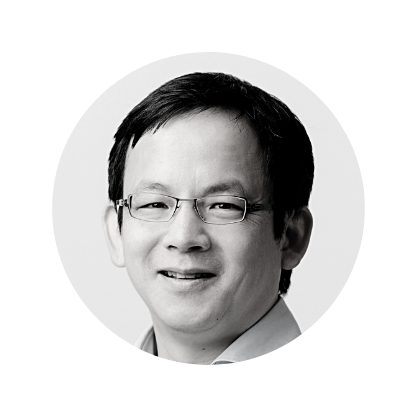
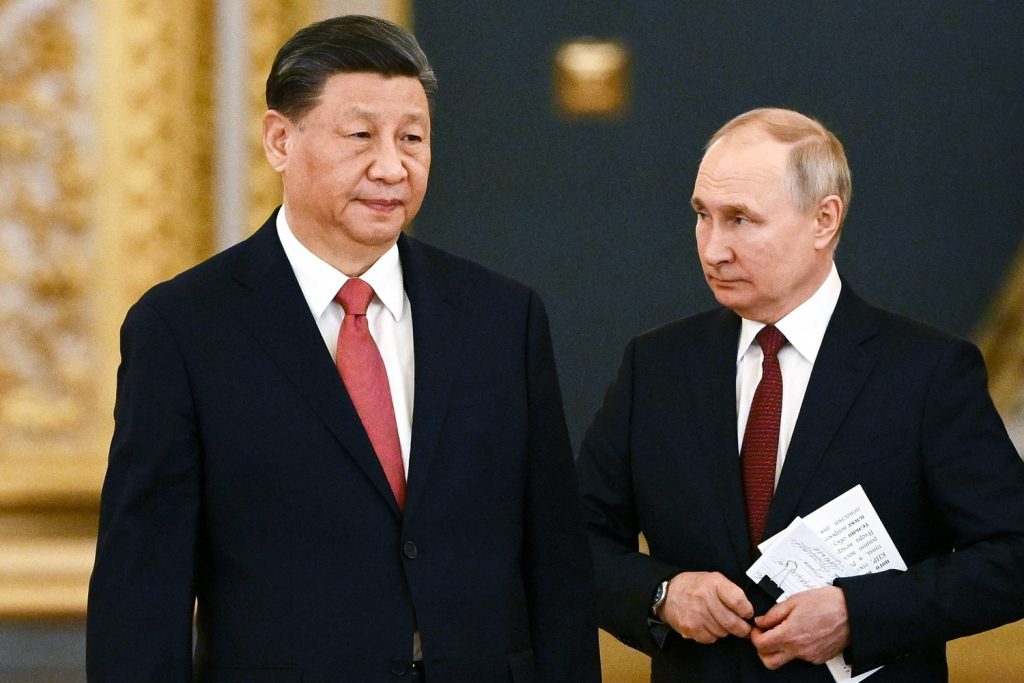
Those who had hoped that Xi Jinping might distance himself somewhat from Vladimir Putin during his visit to Moscow or even criticize the Russian war of aggression against Ukraine were again left disappointed on the second day of the state visit. Instead, it was Putin who expressed criticism after talks with Xi – namely of Ukraine. The Russian leader lamented Ukraine’s and the West’s unwillingness to accept China’s “peace plan”. The 12 points presented by Beijing in February could certainly serve as “a basis for the peaceful resolution of the conflict, when the West and Kyiv will be ready for it”, Putin explained.
Xi, in turn, reiterated that China is “always for peace and dialogue”, promotes a “peaceful settlement” of the fighting in Ukraine, and is “guided by the goals and principles of the UN charter”. The fact that Xi and Putin firmly agreed in a joint statement that a nuclear war should “never be unleashed” must be considered a success. “There can be no winners in a nuclear war.”
Otherwise, the two leaders worked intensively on Tuesday to consolidate their “borderless friendship” politically and to further expand it economically. Politically, it once again becomes clear how much Xi and Putin are on the same level. Economically, it is striking how coldly China monetizes its growing influence on Russia – through enormous discounts, through increasing raw material shipments or simply through hard foreign currency.
At Xi Jinping’s meeting with Russian Prime Minister Mikhail Mishustin, the focus was also on deepening economic cooperation. Mishustin quantified the value of bilateral investment projects at more than 154 billion euros.
A look at last year shows how important China already is for Russia’s economy: In 2022, China accounted for almost 30 percent of Russian exports and 40 percent of imports. As the West rapidly reduces its dependence on Russian natural resources, this dependence will continue to increase. Also important: According to Putin, two-thirds of bilateral trade is already denominated in Russian roubles and Chinese yuan, as the West sanctions Russia’s access to the dollar and euro. In the future, the yuan will also be preferred for trade with countries in Asia, Africa and South America, Putin announced on Tuesday.
Fittingly, Russian energy giant Gazprom reported on Tuesday a new record in daily gas deliveries to China via the “Power of Siberia” pipeline. At the start of the week, China’s demand for Russian gas supplies significantly exceeded the existing daily contractual obligations, the company said. It delivered the requested quantities and thus set a new historical record for daily gas deliveries to China. However, Gazprom did not disclose the specific volume of the delivery.
Last year, gas deliveries to China via the power of Siberia had already reached a peak of 15.5 billion cubic meters of gas. By 2025, Moscow aims to increase its exports via this route by 2.5 times to 38 billion cubic meters per year. Vladimir Putin recently called the gas pipeline the “deal of the century”. On Monday, Chinese customs announced that Russia overtook Saudi Arabia as China’s top oil supplier this year. And Putin rushed to declare on Tuesday that his country would of course be able to meet China’s growing energy needs in the future as well. However, the fact that Xi constantly insists on hefty price reductions was not explicitly addressed.
Xi already made it clear on Monday how important relations with Russia are to him:
把中俄关系巩固好、发展好,是中方基于自身根本利益和世界发展大势作出的战略抉择。
(To consolidate and develop well China-Russia relations is a strategic choice China has made on the basis of its own fundamental interests and the prevailing trends of the world).
On Tuesday, Xi and Putin expanded on this and emphasized how close their two countries are – both now and in the future. Xi invited his “old friend” Putin and his Prime Minister Mishuzhin to Beijing for a return visit. He said Putin should come to China as soon as possible, best this year.
And this is despite the fact that an international arrest warrant for war crimes in Ukraine has been issued against the Kremlin leader last week. But neither China nor Russia recognize the jurisdiction of the International Criminal Court – nor does the USA. If Putin were to travel to Germany, on the other hand, he would have reason to fear arrest.
“If anything, the arrest warrant for Putin only increases leverage over. Xi Jinping can’t be embarrassed by meeting Putin, and the verdict only puts Xi’s ‘dear friend’ in the Kremlin deeper into his pocket,” Alexander Gabuev of the Carnegie Endowment for International Peace said on Twitter.
How far ahead the two look in their cooperation became clear in another episode of the visit. Xi Jinping assured his support for Putin’s candidacy in the Russian presidential election in 2024. Xi said, “Under your strong leadership, Russia has made great strides in its prosperous development. I am confident that the Russian people will continue to give you their firm support.” What is interesting is that Putin has not yet officially announced his intention to run in next year’s election.
Apparently, this is a matter of course for Xi. After all, he had term limits for Chinese presidents abolished recently and was recently re-elected for a third term. Here, too, Xi and Putin make a perfect match. Both are convinced they are the best leaders of their respective countries. Russia expert Gabuev points to “China’s remarkable ability to massage the Russian ego and give Mr. Putin public face, including through Mr. Xi’s state visit.”
So the conclusion of the second day of Xi’s visit to Moscow is that China and Russia remain united against the West. For Xi’s political support, Putin is willing to accept even greater economic dependence.
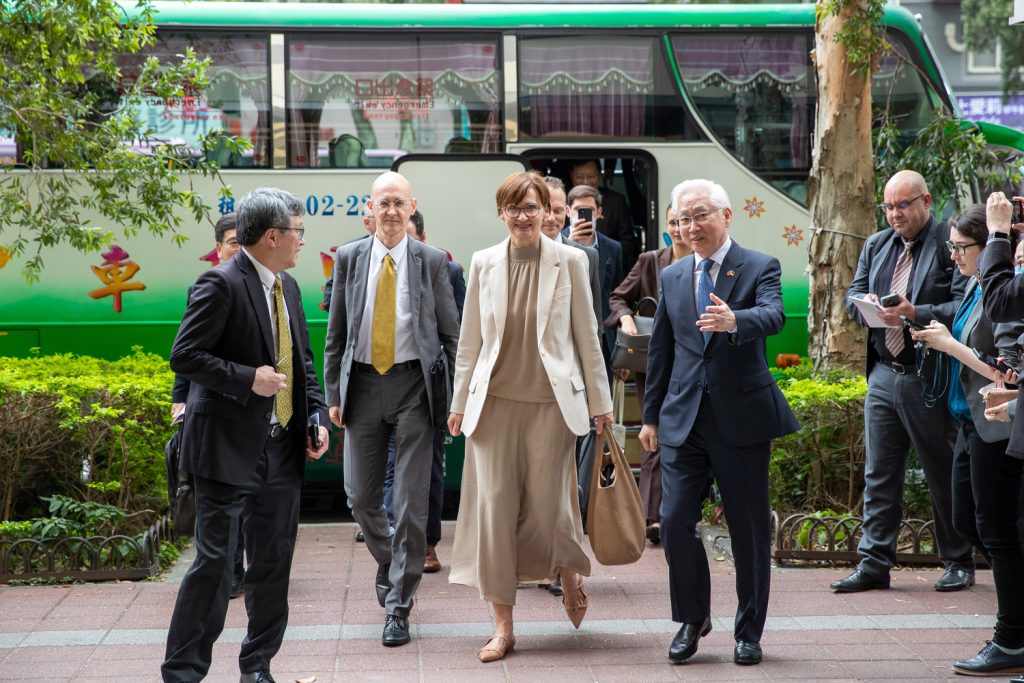
Official trips to Taiwan are always highly political. German Education Minister Bettina Stark-Watzinger (FDP) also has to realize this. Although the Minister described her visit to the democratically governed island, which began on Monday, as a purely “professional visit”, China sees the first visit by a member of the German government since 1997 as an affront – and presumably also as a political statement.
After all, Stark-Watzinger is part of a steady stream of foreign delegations to Taipei – which, however, have so far mostly consisted of MPs and primarily travel to reassure Taiwan of the support of their governments. Members of parliament from the three Baltic states have been there in recent months, as was a German Bundestag delegation led by defense expert Marie-Agnes Strack-Zimmermann. And, as the mother of all affronts, so to speak, the then-leader of the US House of Representatives Nancy Pelosi in August 2022.
The Foreign Ministry in Beijing now declared its firm rejection of the Minister’s “vile” visit. China has lodged a protest, spokesman Wang Wenbin said on Tuesday. Germany must “immediately” cease its cooperation with the “separatist forces” in Taiwan.
Stark-Watzinger only said: “The German government’s China strategy remains unchanged.” A spokesperson for the Foreign Office in Berlin already pointed out on Friday that Germany would maintain close and good relations with Taiwan “below the threshold of recognition under international law”. Regular exchanges and reciprocal visits by ministers are “completely normal” – and also in line with the One-China policy demanded by Beijing, the spokesperson said.
In any case, Stark-Watzinger emphasizes that she is in Taiwan “not for reasons of geopolitical nature”, but for “research and innovation”. On Tuesday, she signed a science and technology agreement with her counterpart Wu Tsung-tsong. This agreement stands for “enhancing cooperation on the basis of democratic values, transparency, openness, reciprocity and scientific freedom”, Stark-Watzinger said in Taipei on Tuesday. It would open a “new chapter in the field of research and innovation” for relations with Taiwan.
Stark-Watzinger also wanted to meet with Digital Minister Audrey Tang. Today, Wednesday, she is scheduled to visit a school, meet with Minister of Education Pan Wen Chung and hold a press conference.
The FDP defended its Minister’s trip against critical voices in German politics who consider her visit an unnecessary provocation of China, which came, for example, from the Social Democratic Party (SPD). Closer cooperation with Taiwan in the areas of education, research and technology makes a lot of sense, tweeted FDP parliamentary group leader Christian Duerr.
There is no question that the technologically innovative Taiwan is an attractive partner for concrete projects. “Closer cooperation with Taiwan in the fields of education, science, research and digitalization makes a lot of sense for tackling major challenges such as the climate crisis, for securing German and European technological sovereignty and for expanding our innovation ecosystems,” Kai Gehring, Chairman of the Committee on Education, Research and Technology Assessment, told Table.Media. “Within the framework of Germany’s “one-China” policy, it is important to intensively continue the scientific, innovation and technology policy cooperation between Berlin and Taipei for the benefit of both sides and to explore further deepening it,” said the Green politician.
Nevertheless, the question remains: Can a visit to Taiwan be completely non-political? After all, geopolitics is already involved when someone merely uses the words “chips” and “Taiwan” in the same sentence. It is not even just about standing up to Beijing, but also about influence in Taipei.
“Of course, a German minister does not visit Taiwan by chance. It is clear that the visit is aimed at greasing the wheels regarding Germany’s access to chips,” comments Chang Meng-jen, coordinator of diplomacy and international relations at Fu Jen Catholic University, in the DPP-affiliated newspaper Taipei Times about her trip – with an eye on Taiwan’s semiconductor giant TSMC, which is considering building a factory in Dresden but is also being courted by Singapore.
Particularly striking is the liberal FDP’s interest in Taiwan: Guenter Rexrodt, the last member of the cabinet to travel to Taiwan in 1997, was a member of the Free Democratic Party. And Tsai Ing-wen’s DPP, like the FDP itself, belongs to the Liberal International, so there is also a certain party-political loyalty. The FDP, like the Green Party, has also long called for Berlin to take a tougher line on the People’s Republic.
And so FDP MP Frank Mueller-Rosentritt – who, as a member of the Foreign Affairs Committee, had himself been to Taiwan with Strack-Zimmermann in January – called Stark-Watzinger’s trip a “strong signal to the rest of the world”. That does not sound like a purely professional visit.
Shortly after his trip, Müller-Rosentritt had already been impressed by the resilience and vitality of the Taiwanese in the face of the threat from Beijing. Taiwan has to fend off hundreds of cyber attacks and disinformation campaigns by the Chinese Communist Party every day, he said then in an interview with Table.Media. “At this point, Germany can learn a lot from Taiwan, where it can benefit from the experience of how cyber attacks are repelled through increased cooperation between security agencies.” This is another area where technology advancement, cooperation and grand geopolitics intermingle. Contributed by Tim Gabel
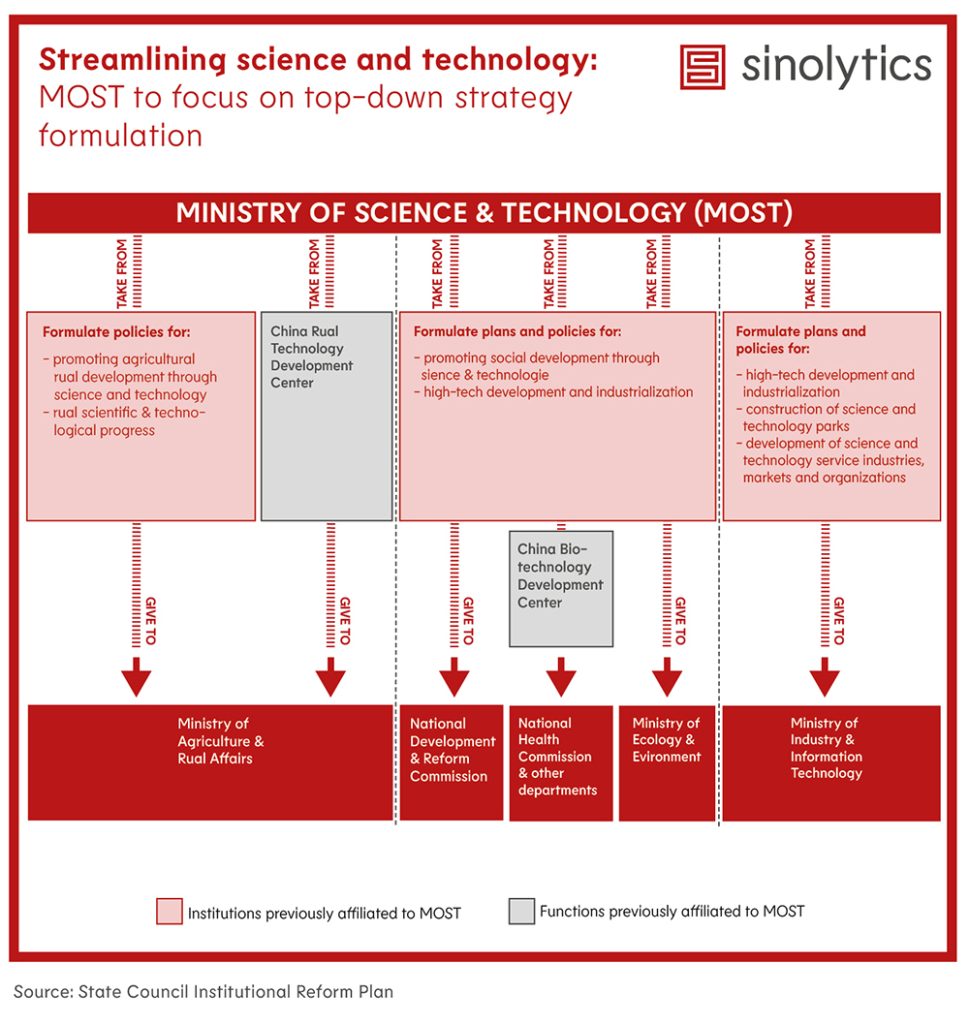
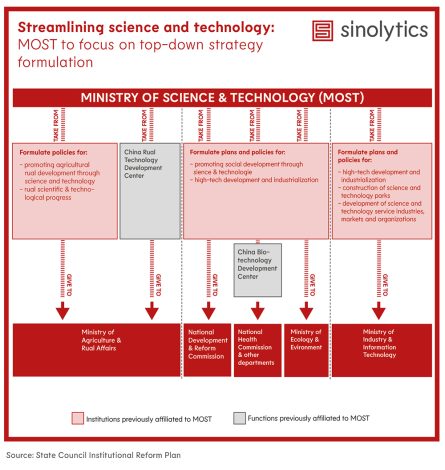
Sinolytics is a European research-based consultancy entirely focused on China. It advises European companies on their strategic orientation and concrete business activities in the People’s Republic.
German energy supplier RWE has warned that a US import ban on the Chinese region of Xinjiang could “significantly hinder” European plans to build a green energy infrastructure. The import of solar modules from Asia is now subject to “stringent checks,” since Washington enacted a ban on all imports from Xinjiang in 2022 (Uyghur Forced Labor Prevention Act), the company writes in its annual report. “If the USA continues to impede the procurement of solar panels, then it is possible that our photovoltaic expansion initiatives could fall behind schedule.”
However, the company does not want to be seen as an opponent of the US import ban. RWE is not advocating a softening of UFLPA, CEO Markus Krebber stressed in a Financial Times report. Mark Noyes, head of RWE’s US-based Clean Energy Division, added, “Those checks are critical to making sure what enters the US or any shore [is] manufactured and sourced from ethical positions.” Instead, CEO Krebber believes the solution is to strengthen solar supply chains in the US and Europe. ari
To cushion the impact of the US chip embargo, China is facilitating access to subsidies for its semiconductor industry. The Financial Times writes that the former requirement to meet certain targets will no longer apply. In addition, companies are to be more involved in government-funded research projects. Among the beneficiaries are chip producers such as SMIC and Hua Hong, the electronics group Huawei as well as chip suppliers such as Naura or Advanced Micro-Fabrication Equipment, FT wrote, citing insiders.
According to earlier Reuters information, the People’s Republic is pumping the equivalent of 136 billion dollars into its own semiconductor sector. The money is to be used to modernize the industry as well as for research and development. rtr
China’s ambassador to the Netherlands has warned of a deterioration of bilateral relations if the EU country implements its planned export ban on semiconductor machinery manufacturer ASML. The Netherlands would thus jeopardize its leading position in chip technology by cutting itself off from the world’s largest market, Chinese Ambassador Tan Jian said, according to the Financieele Dagblad. Such export restrictions would be “bad for China, bad for the Netherlands and world trade – and will have a negative impact on our relations and economic cooperation,” Tan said. “This will not be without consequence. I will not speculate on countermeasures, but China will not take this lightly.”
In early March, Foreign Trade Minister Liesje Schreinemacher announced that the Netherlands would further restrict the sale of ASML and ASMI advanced chip-making equipment. By doing so, the Netherlands wants to “prevent Dutch goods from contributing to undesirable end uses, like military deployment or in weapons of mass destruction”, she explained. The Netherlands would thus follow US chip sanctions.
According to Tan, the boycott would undermine international trade regulations and ASML’s leading position in global technology. “You are a small country, and you have always been the standard bearer for free trade. You keep your lead by selling to China and reinvesting the proceeds,” the diplomat told The Hague. If China cannot buy the ASML machines, he said, the People’s Republic will have no choice but to build its own. ari
The Netherlands has joined in: After the USA, the United Kingdom, Belgium and the EU ordered their government officials to delete TikTok from their staff mobile phones, the Dutch government has also taken this step. Civil servants are now required to immediately delete the controversial short video app from their mobile devices.
According to Alexandra van Huffelen, the responsible State Secretary, there would be an increased risk of espionage, with user data ending up in the hands of the Chinese state through TikTok. flee
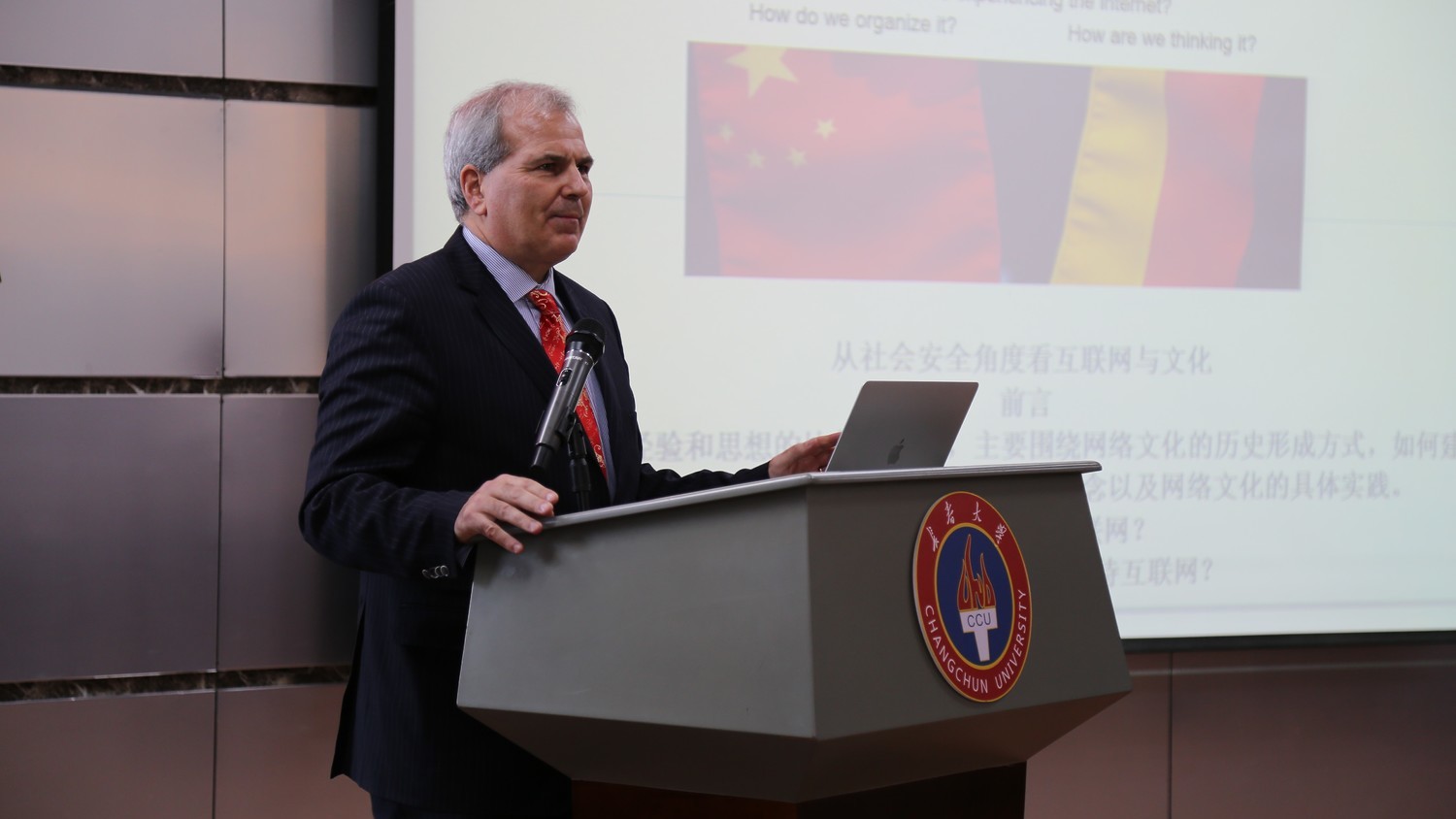
“Hardly anyone in Germany is interested in philosophy,” says Ole Doering. In China, on the other hand, there is a high regard for the discipline running through all levels of society. Doering has been a professor of comparative cultural studies at Shifan University in Changsha, in the province of Hunan, for two years. He is campaigning “for more Germans to come to China, simply to study here, to experience the freedoms that one has here in research, especially as a foreigner.”
Doering became interested in classical Chinese philosophy early on – he first studied at the University of Tuebingen, later in Goettingen. Eventually, he moved to the Institute for Asian Studies in Hamburg, which still existed at the time. This gave him the opportunity to “build up his own line of research,” says the scientist, who, among other things, deals with questions of how to deal with dying and life-prolonging measures. Above all, however, he also focuses on questions of eugenics, such as: “What is the human being? What is (not) allowed to be done with human beings? And what happens if we do anything to human beings through medicine or biotechnology?”
A research assignment brings Doering to China. He developed an interdisciplinary and international format bringing together very different groups, including physicians, basic researchers, legislators, human rights activists and patients. One key insight he gains from this project is that “we have no reason whatsoever to assume that there is any serious difference in China from the basic moral-ethical assumptions to what we believe in Germany and Europe.”
However, where China would differ significantly is the way how the law is formed and implemented. What is already considered a norm does not always exist in legal form. This difference can be explained culturally, but also historically, Doering reports. After all, China “only started to invent its constitutional system a few years ago, and with German help”. The Chinese realized very early on that the German Basic Law and the German experience in dealing with these issues were very close to them.
Back to philosophy: In China and Southeast Asia, respectively, people asked themselves crucial ethical-philosophical questions at a very early time – in the fifth century BC – which are still very valuable today, as the professor emphasizes. “A wealth of knowledge emerged, of which we are hardly aware. Even the Chinese have only what is canonized of it in mind.” This “treasure of mankind,” as he calls it, should finally be lifted and scientifically processed.
A central matter for Doering, not just in the field of ethics – but especially there – is the understanding between cultures: “It is crucial that the process of mutual acquaintance and understanding is carried out,” he explains. Foremost, he says, is not the question of who is right, but rather, “Who are you, who am I?” Here, clarifying terms is particularly important in order to identify what exactly is being talked about. This is something the habilitated philosopher also tries to pass on to his students. Juliane Scholuebbers
Felix van Aerssen has been Coordinator for 2.0L TFSI Engine Development at Volkswagen in Dalian since the beginning of the month. He was previously a Development Engineer at Audi AG in Ingolstadt.
Qi Mei is the new Ambassador of the People’s Republic of China to the Republic of Austria. She succeeds Li Xiaosi.
Is something changing in your organization? Let us know to heads@table.media!

It is tea time in the southern Chinese region of Changning, in the province of Hunan. Or more precisely: Harvest time has started there. The tea pickers only have a few days to pluck the fresh leaves from the bushes and roast them in large vessels following a specific stirring procedure. This is what gives Changning tea, which is famous in China, its special aroma.
Xi in Moscow: United against the West
The German Minister’s bold visit to Taiwan
Sinolytics.Radar: new research approach
RWE: US sanctions could jeopardize energy transition
Beijing further strengthens domestic chip industry
Chinese ambassador warns Netherlands
Netherlands also join TikTok ban
Heads: Philosopher Ole Doering on freedom of research in China
From the Western and especially the Ukrainian perspective, the images could not be worse. Xi and Putin, apparently happy and united, pledge their “eternal friendship”. The mood is: Together against the West. This sentiment unites the former rivals. With these images from Moscow, a bloc is forming that will divide the world like we have not seen since the end of the Cold War.
Such a bloc could still be prevented from forming. Many in Beijing are aware that a global divide would severely harm China, the world’s leading exporter. This makes it all the more important that the West talks with Xi – first and foremost the USA. Not only for the sake of the people of Ukraine, but for the entire world.
German Education Minister Bettina Stark-Watzinger calls her visit to Taiwan a purely professional visit. Beijing’s outrage should not surprise her, either – she and her Free Democratic Party (FDP) knowingly accepted this outrage. Beijing’s protest followed quickly.
However, Beijing’s letter of protest is far from justified. On the contrary, the Minister’s visit is good and right. Because it happens entirely under the One-China policy recognized by Germany, which explicitly allows scientific and economic exchange with Taiwan. It is the leadership in Beijing that has constantly pushed the boundaries. No one in Berlin should get intimidated by this.


Those who had hoped that Xi Jinping might distance himself somewhat from Vladimir Putin during his visit to Moscow or even criticize the Russian war of aggression against Ukraine were again left disappointed on the second day of the state visit. Instead, it was Putin who expressed criticism after talks with Xi – namely of Ukraine. The Russian leader lamented Ukraine’s and the West’s unwillingness to accept China’s “peace plan”. The 12 points presented by Beijing in February could certainly serve as “a basis for the peaceful resolution of the conflict, when the West and Kyiv will be ready for it”, Putin explained.
Xi, in turn, reiterated that China is “always for peace and dialogue”, promotes a “peaceful settlement” of the fighting in Ukraine, and is “guided by the goals and principles of the UN charter”. The fact that Xi and Putin firmly agreed in a joint statement that a nuclear war should “never be unleashed” must be considered a success. “There can be no winners in a nuclear war.”
Otherwise, the two leaders worked intensively on Tuesday to consolidate their “borderless friendship” politically and to further expand it economically. Politically, it once again becomes clear how much Xi and Putin are on the same level. Economically, it is striking how coldly China monetizes its growing influence on Russia – through enormous discounts, through increasing raw material shipments or simply through hard foreign currency.
At Xi Jinping’s meeting with Russian Prime Minister Mikhail Mishustin, the focus was also on deepening economic cooperation. Mishustin quantified the value of bilateral investment projects at more than 154 billion euros.
A look at last year shows how important China already is for Russia’s economy: In 2022, China accounted for almost 30 percent of Russian exports and 40 percent of imports. As the West rapidly reduces its dependence on Russian natural resources, this dependence will continue to increase. Also important: According to Putin, two-thirds of bilateral trade is already denominated in Russian roubles and Chinese yuan, as the West sanctions Russia’s access to the dollar and euro. In the future, the yuan will also be preferred for trade with countries in Asia, Africa and South America, Putin announced on Tuesday.
Fittingly, Russian energy giant Gazprom reported on Tuesday a new record in daily gas deliveries to China via the “Power of Siberia” pipeline. At the start of the week, China’s demand for Russian gas supplies significantly exceeded the existing daily contractual obligations, the company said. It delivered the requested quantities and thus set a new historical record for daily gas deliveries to China. However, Gazprom did not disclose the specific volume of the delivery.
Last year, gas deliveries to China via the power of Siberia had already reached a peak of 15.5 billion cubic meters of gas. By 2025, Moscow aims to increase its exports via this route by 2.5 times to 38 billion cubic meters per year. Vladimir Putin recently called the gas pipeline the “deal of the century”. On Monday, Chinese customs announced that Russia overtook Saudi Arabia as China’s top oil supplier this year. And Putin rushed to declare on Tuesday that his country would of course be able to meet China’s growing energy needs in the future as well. However, the fact that Xi constantly insists on hefty price reductions was not explicitly addressed.
Xi already made it clear on Monday how important relations with Russia are to him:
把中俄关系巩固好、发展好,是中方基于自身根本利益和世界发展大势作出的战略抉择。
(To consolidate and develop well China-Russia relations is a strategic choice China has made on the basis of its own fundamental interests and the prevailing trends of the world).
On Tuesday, Xi and Putin expanded on this and emphasized how close their two countries are – both now and in the future. Xi invited his “old friend” Putin and his Prime Minister Mishuzhin to Beijing for a return visit. He said Putin should come to China as soon as possible, best this year.
And this is despite the fact that an international arrest warrant for war crimes in Ukraine has been issued against the Kremlin leader last week. But neither China nor Russia recognize the jurisdiction of the International Criminal Court – nor does the USA. If Putin were to travel to Germany, on the other hand, he would have reason to fear arrest.
“If anything, the arrest warrant for Putin only increases leverage over. Xi Jinping can’t be embarrassed by meeting Putin, and the verdict only puts Xi’s ‘dear friend’ in the Kremlin deeper into his pocket,” Alexander Gabuev of the Carnegie Endowment for International Peace said on Twitter.
How far ahead the two look in their cooperation became clear in another episode of the visit. Xi Jinping assured his support for Putin’s candidacy in the Russian presidential election in 2024. Xi said, “Under your strong leadership, Russia has made great strides in its prosperous development. I am confident that the Russian people will continue to give you their firm support.” What is interesting is that Putin has not yet officially announced his intention to run in next year’s election.
Apparently, this is a matter of course for Xi. After all, he had term limits for Chinese presidents abolished recently and was recently re-elected for a third term. Here, too, Xi and Putin make a perfect match. Both are convinced they are the best leaders of their respective countries. Russia expert Gabuev points to “China’s remarkable ability to massage the Russian ego and give Mr. Putin public face, including through Mr. Xi’s state visit.”
So the conclusion of the second day of Xi’s visit to Moscow is that China and Russia remain united against the West. For Xi’s political support, Putin is willing to accept even greater economic dependence.

Official trips to Taiwan are always highly political. German Education Minister Bettina Stark-Watzinger (FDP) also has to realize this. Although the Minister described her visit to the democratically governed island, which began on Monday, as a purely “professional visit”, China sees the first visit by a member of the German government since 1997 as an affront – and presumably also as a political statement.
After all, Stark-Watzinger is part of a steady stream of foreign delegations to Taipei – which, however, have so far mostly consisted of MPs and primarily travel to reassure Taiwan of the support of their governments. Members of parliament from the three Baltic states have been there in recent months, as was a German Bundestag delegation led by defense expert Marie-Agnes Strack-Zimmermann. And, as the mother of all affronts, so to speak, the then-leader of the US House of Representatives Nancy Pelosi in August 2022.
The Foreign Ministry in Beijing now declared its firm rejection of the Minister’s “vile” visit. China has lodged a protest, spokesman Wang Wenbin said on Tuesday. Germany must “immediately” cease its cooperation with the “separatist forces” in Taiwan.
Stark-Watzinger only said: “The German government’s China strategy remains unchanged.” A spokesperson for the Foreign Office in Berlin already pointed out on Friday that Germany would maintain close and good relations with Taiwan “below the threshold of recognition under international law”. Regular exchanges and reciprocal visits by ministers are “completely normal” – and also in line with the One-China policy demanded by Beijing, the spokesperson said.
In any case, Stark-Watzinger emphasizes that she is in Taiwan “not for reasons of geopolitical nature”, but for “research and innovation”. On Tuesday, she signed a science and technology agreement with her counterpart Wu Tsung-tsong. This agreement stands for “enhancing cooperation on the basis of democratic values, transparency, openness, reciprocity and scientific freedom”, Stark-Watzinger said in Taipei on Tuesday. It would open a “new chapter in the field of research and innovation” for relations with Taiwan.
Stark-Watzinger also wanted to meet with Digital Minister Audrey Tang. Today, Wednesday, she is scheduled to visit a school, meet with Minister of Education Pan Wen Chung and hold a press conference.
The FDP defended its Minister’s trip against critical voices in German politics who consider her visit an unnecessary provocation of China, which came, for example, from the Social Democratic Party (SPD). Closer cooperation with Taiwan in the areas of education, research and technology makes a lot of sense, tweeted FDP parliamentary group leader Christian Duerr.
There is no question that the technologically innovative Taiwan is an attractive partner for concrete projects. “Closer cooperation with Taiwan in the fields of education, science, research and digitalization makes a lot of sense for tackling major challenges such as the climate crisis, for securing German and European technological sovereignty and for expanding our innovation ecosystems,” Kai Gehring, Chairman of the Committee on Education, Research and Technology Assessment, told Table.Media. “Within the framework of Germany’s “one-China” policy, it is important to intensively continue the scientific, innovation and technology policy cooperation between Berlin and Taipei for the benefit of both sides and to explore further deepening it,” said the Green politician.
Nevertheless, the question remains: Can a visit to Taiwan be completely non-political? After all, geopolitics is already involved when someone merely uses the words “chips” and “Taiwan” in the same sentence. It is not even just about standing up to Beijing, but also about influence in Taipei.
“Of course, a German minister does not visit Taiwan by chance. It is clear that the visit is aimed at greasing the wheels regarding Germany’s access to chips,” comments Chang Meng-jen, coordinator of diplomacy and international relations at Fu Jen Catholic University, in the DPP-affiliated newspaper Taipei Times about her trip – with an eye on Taiwan’s semiconductor giant TSMC, which is considering building a factory in Dresden but is also being courted by Singapore.
Particularly striking is the liberal FDP’s interest in Taiwan: Guenter Rexrodt, the last member of the cabinet to travel to Taiwan in 1997, was a member of the Free Democratic Party. And Tsai Ing-wen’s DPP, like the FDP itself, belongs to the Liberal International, so there is also a certain party-political loyalty. The FDP, like the Green Party, has also long called for Berlin to take a tougher line on the People’s Republic.
And so FDP MP Frank Mueller-Rosentritt – who, as a member of the Foreign Affairs Committee, had himself been to Taiwan with Strack-Zimmermann in January – called Stark-Watzinger’s trip a “strong signal to the rest of the world”. That does not sound like a purely professional visit.
Shortly after his trip, Müller-Rosentritt had already been impressed by the resilience and vitality of the Taiwanese in the face of the threat from Beijing. Taiwan has to fend off hundreds of cyber attacks and disinformation campaigns by the Chinese Communist Party every day, he said then in an interview with Table.Media. “At this point, Germany can learn a lot from Taiwan, where it can benefit from the experience of how cyber attacks are repelled through increased cooperation between security agencies.” This is another area where technology advancement, cooperation and grand geopolitics intermingle. Contributed by Tim Gabel


Sinolytics is a European research-based consultancy entirely focused on China. It advises European companies on their strategic orientation and concrete business activities in the People’s Republic.
German energy supplier RWE has warned that a US import ban on the Chinese region of Xinjiang could “significantly hinder” European plans to build a green energy infrastructure. The import of solar modules from Asia is now subject to “stringent checks,” since Washington enacted a ban on all imports from Xinjiang in 2022 (Uyghur Forced Labor Prevention Act), the company writes in its annual report. “If the USA continues to impede the procurement of solar panels, then it is possible that our photovoltaic expansion initiatives could fall behind schedule.”
However, the company does not want to be seen as an opponent of the US import ban. RWE is not advocating a softening of UFLPA, CEO Markus Krebber stressed in a Financial Times report. Mark Noyes, head of RWE’s US-based Clean Energy Division, added, “Those checks are critical to making sure what enters the US or any shore [is] manufactured and sourced from ethical positions.” Instead, CEO Krebber believes the solution is to strengthen solar supply chains in the US and Europe. ari
To cushion the impact of the US chip embargo, China is facilitating access to subsidies for its semiconductor industry. The Financial Times writes that the former requirement to meet certain targets will no longer apply. In addition, companies are to be more involved in government-funded research projects. Among the beneficiaries are chip producers such as SMIC and Hua Hong, the electronics group Huawei as well as chip suppliers such as Naura or Advanced Micro-Fabrication Equipment, FT wrote, citing insiders.
According to earlier Reuters information, the People’s Republic is pumping the equivalent of 136 billion dollars into its own semiconductor sector. The money is to be used to modernize the industry as well as for research and development. rtr
China’s ambassador to the Netherlands has warned of a deterioration of bilateral relations if the EU country implements its planned export ban on semiconductor machinery manufacturer ASML. The Netherlands would thus jeopardize its leading position in chip technology by cutting itself off from the world’s largest market, Chinese Ambassador Tan Jian said, according to the Financieele Dagblad. Such export restrictions would be “bad for China, bad for the Netherlands and world trade – and will have a negative impact on our relations and economic cooperation,” Tan said. “This will not be without consequence. I will not speculate on countermeasures, but China will not take this lightly.”
In early March, Foreign Trade Minister Liesje Schreinemacher announced that the Netherlands would further restrict the sale of ASML and ASMI advanced chip-making equipment. By doing so, the Netherlands wants to “prevent Dutch goods from contributing to undesirable end uses, like military deployment or in weapons of mass destruction”, she explained. The Netherlands would thus follow US chip sanctions.
According to Tan, the boycott would undermine international trade regulations and ASML’s leading position in global technology. “You are a small country, and you have always been the standard bearer for free trade. You keep your lead by selling to China and reinvesting the proceeds,” the diplomat told The Hague. If China cannot buy the ASML machines, he said, the People’s Republic will have no choice but to build its own. ari
The Netherlands has joined in: After the USA, the United Kingdom, Belgium and the EU ordered their government officials to delete TikTok from their staff mobile phones, the Dutch government has also taken this step. Civil servants are now required to immediately delete the controversial short video app from their mobile devices.
According to Alexandra van Huffelen, the responsible State Secretary, there would be an increased risk of espionage, with user data ending up in the hands of the Chinese state through TikTok. flee

“Hardly anyone in Germany is interested in philosophy,” says Ole Doering. In China, on the other hand, there is a high regard for the discipline running through all levels of society. Doering has been a professor of comparative cultural studies at Shifan University in Changsha, in the province of Hunan, for two years. He is campaigning “for more Germans to come to China, simply to study here, to experience the freedoms that one has here in research, especially as a foreigner.”
Doering became interested in classical Chinese philosophy early on – he first studied at the University of Tuebingen, later in Goettingen. Eventually, he moved to the Institute for Asian Studies in Hamburg, which still existed at the time. This gave him the opportunity to “build up his own line of research,” says the scientist, who, among other things, deals with questions of how to deal with dying and life-prolonging measures. Above all, however, he also focuses on questions of eugenics, such as: “What is the human being? What is (not) allowed to be done with human beings? And what happens if we do anything to human beings through medicine or biotechnology?”
A research assignment brings Doering to China. He developed an interdisciplinary and international format bringing together very different groups, including physicians, basic researchers, legislators, human rights activists and patients. One key insight he gains from this project is that “we have no reason whatsoever to assume that there is any serious difference in China from the basic moral-ethical assumptions to what we believe in Germany and Europe.”
However, where China would differ significantly is the way how the law is formed and implemented. What is already considered a norm does not always exist in legal form. This difference can be explained culturally, but also historically, Doering reports. After all, China “only started to invent its constitutional system a few years ago, and with German help”. The Chinese realized very early on that the German Basic Law and the German experience in dealing with these issues were very close to them.
Back to philosophy: In China and Southeast Asia, respectively, people asked themselves crucial ethical-philosophical questions at a very early time – in the fifth century BC – which are still very valuable today, as the professor emphasizes. “A wealth of knowledge emerged, of which we are hardly aware. Even the Chinese have only what is canonized of it in mind.” This “treasure of mankind,” as he calls it, should finally be lifted and scientifically processed.
A central matter for Doering, not just in the field of ethics – but especially there – is the understanding between cultures: “It is crucial that the process of mutual acquaintance and understanding is carried out,” he explains. Foremost, he says, is not the question of who is right, but rather, “Who are you, who am I?” Here, clarifying terms is particularly important in order to identify what exactly is being talked about. This is something the habilitated philosopher also tries to pass on to his students. Juliane Scholuebbers
Felix van Aerssen has been Coordinator for 2.0L TFSI Engine Development at Volkswagen in Dalian since the beginning of the month. He was previously a Development Engineer at Audi AG in Ingolstadt.
Qi Mei is the new Ambassador of the People’s Republic of China to the Republic of Austria. She succeeds Li Xiaosi.
Is something changing in your organization? Let us know to heads@table.media!

It is tea time in the southern Chinese region of Changning, in the province of Hunan. Or more precisely: Harvest time has started there. The tea pickers only have a few days to pluck the fresh leaves from the bushes and roast them in large vessels following a specific stirring procedure. This is what gives Changning tea, which is famous in China, its special aroma.
